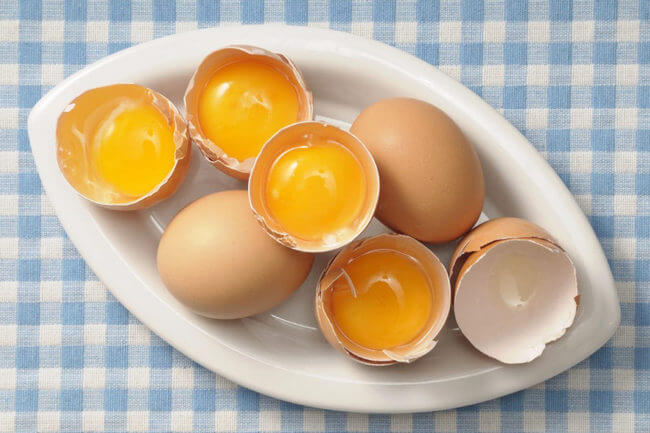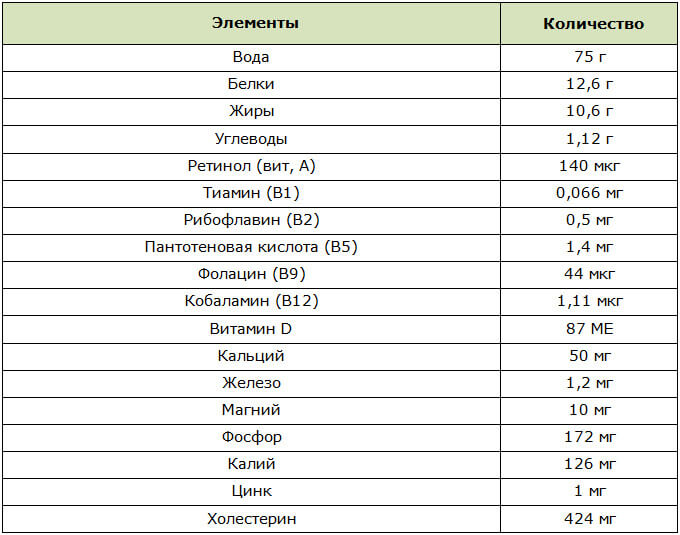Eggs are unique products that do not fit into any one food category. They are one of a kind. They contain pure protein and almost the entire range of amino acids that are necessary for the proper functioning of the body. On the other hand, they can harbor the dangerous bacteria salmonella and contain excessive amounts of cholesterol. Doesn’t this mean that using them for weight loss would have a negative impact on health?
Weight loss mechanism

When consumed regularly but in moderation, eggs can reduce weight. This process has a scientific explanation:
- a minimal amount of carbohydrates will force the body to find additional sources of energy;
- protein will prevent the body from expending muscle fibers for these purposes, promoting their growth, and will redirect it to fat stores;
- a sufficient amount of nutrients (vitamins, minerals, amino acids, unsaturated fats) will ensure high work capacity and active brain activity;
- the duration of protein digestion will provide freedom from hunger pangs;
- the production of ketones by the liver will provide appetite control;
- unsaturated acids prevent the formation of fat stores.
Raw: nutritional value

* The average weight of one egg with shell is 50 g, without the shell – 45 g.
Boiled: nutritional value

Energy value – 155 kcal.
From the pages of history. The first omelet was prepared in Ancient Rome and was called Ovemele, which means “eggs and honey” – these products were used in the dish.
Useful properties
Regular consumption of eggs contributes not only to weight loss, but also to the overall health of the body, as they are very useful:
- improve the condition of bones and joints;
- strengthens immunity;
- cleanses blood vessels, thanks to lecithin;
- reduce the risk of cancer, cataract development;
- preserves vision;
- accelerates recovery after lingering illnesses;
- has a calming effect on the nervous system (thanks to unsaturated fats), improves mood, prevents stress;
- normalizes metabolism;
- improves memory, increases concentration and mental abilities;
- activates libido (in both men and women).
Therefore, losing weight with their help will definitely be beneficial for health, but only with the observance of certain conditions.
Interesting fact. Very few foods contain vitamin D, which is usually produced by exposure to ultraviolet light. Egg yolk is one of them.
Possible harm
Contraindications:
- allergy;
- exacerbation of chronic diseases;
- pregnancy, lactation;
- diabetes;
- gastritis, pancreatitis, ulcer;
- high blood pressure;
- age under 7 years;
- kidney and liver pathologies;
- cardiovascular diseases;
- stones in the kidneys or gallbladder;
- problems with the pancreas.
Side effects:
- pain, cramps, discomfort in the abdomen;
- intestinal disorders: bloating, flatulence, constipation;
- acetone odor from the mouth;
- white coating on the tongue;
- impaired kidney function, which may be expressed by an increase in the number of edema and the formation of bags under the eyes;
- problems with liver function;
- exacerbation of existing diseases;
- allergic reactions;
- salmonellosis.
From all over the world – bit by bit. Albert Hitchcock, a famous American film director, suffered from ovophobia – the fear of oval-shaped objects. Eggs in particular scared him. Their sight caused him to have a panic attack. He avoided the departments of stores where they were sold, and, of course, never ate them.
Which ones are better?

By type
There are ongoing debates among those who are losing weight about which eggs are better to use for weight loss – quail or chicken. The former contain more amino acids, but they also have excessive amounts of cholesterol. Chicken is richer in unsaturated fatty acids. The myths that salmonella does not penetrate quail eggs and that they are 100% environmentally friendly have been debunked, and in these matters, they have been equated with chicken eggs. So the choice is yours.
By category
Each egg in the store must be marked. First, these are letters indicating the quality and functionality of the product:
- “Д” – dietary, sold within a week;
- “С” – table, sold within 25 days.
Everything is clear here: for weight loss, we choose exclusively dietary options.
Secondly, the marking in the form of numbers or letters should be present, which indicates the weight category:

Weight of components (if only proteins or only yolks are used for weight loss):

This data is necessary to calculate the daily calorie content. Experts advise choosing the smallest ones by weight – they are the most useful.
By cooking method
Raw eggs can be recommended to those who refuse to cook food with heat. However, they must be thoroughly washed before use. It is necessary to take into account the following shortcomings:
- they contain 2 times less protein than boiled ones, and it is necessary for maintaining muscle mass with weight loss to those who play sports;
- raw protein is absorbed only by 50%, the remaining 50% clog the intestines with decay products;
- the risk of contracting bacteria and harmful microorganisms increases several fold.
Boiled eggs are the best option for weight loss. Moreover, they can be cooked in different ways, depending on the time spent on the stove:
- soft-boiled – cooked for no more than 4 minutes after being dipped in boiling water (159 kcal);
- “in a bag” – 6 min. (157 kcal);
- poached – 7 min. (159 kcal);
- hard-boiled – 10 min. (160 kcal).
In terms of calorie content, all types are roughly the same. However, soft-boiled and “in a bag” are more quickly absorbed. For the stomach, this is good, but when dieting, it is not very good, since in an hour you will want to eat again. Therefore, nutritionists advise opting for hard-boiled or poached eggs if you are struggling with hunger.
Fried eggs (either fried eggs or omelet) are not recommended for weight loss. They are too high in calories when using oil (194 kcal). It is allowed to cook them only in a dry frying pan, but the quality of the dish will be poor.
Caution! All lovers of raw eggs need to know that salmon
Click to rate this post![Total: 0 Average: 0]



